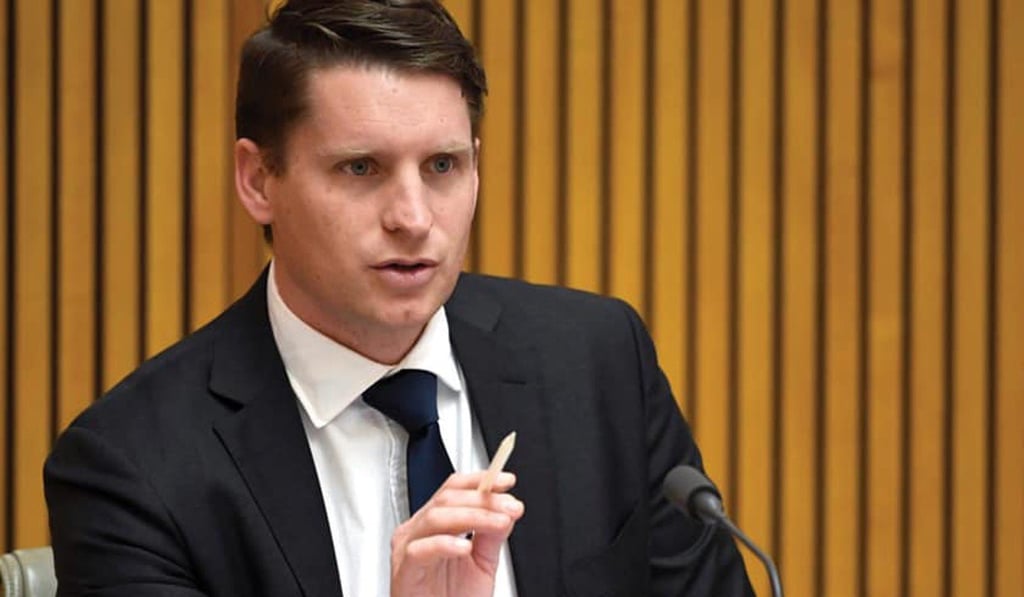Advertisement
Beijing condemns Australian MP for drawing parallel between China’s influence and rise of Nazi Germany before WW2
- Andrew Hastie warned Australia should not underestimate ‘authoritarian neighbour’, invoking parallels with the French before World War Two
- The Chinese embassy in Australia said Hastie had revealed ‘his Cold-War mentality and ideological bias’
Reading Time:2 minutes
Why you can trust SCMP

China on Thursday said it “strongly deplores” comments by the head of Australia’s parliamentary intelligence committee, who likened the West’s attitude to China to the inadequate French response to the World War Two advances of Nazi Germany.
The Chinese embassy in Australia said in a statement that Australian lawmaker Andrew Hastie had a “cold war mentality and ideological bias”.
“It goes against the world trend of peace, cooperation and development,” the embassy said on its website. “It is detrimental to China-Australian relations.
Advertisement
“History has proven and will continue to prove that China’s peaceful development is an opportunity, not a threat to the world. We urge certain Australian politicians to take off their ‘coloured lens’ and view China’s development path in an objective and rational way.”
Although China and Australia are major trading partners, their relationship has deteriorated in recent years over concerns Beijing is influencing the island’s domestic affairs. Australia has also strengthened its long-standing alliance with the United States, which has accused China of destabilising the Indo-Pacific.
Advertisement
Hastie is a federal member of Australia’s Liberal Party, which leads the ruling coalition. He is a conservative lawmaker and former special forces soldier.

Advertisement
Select Voice
Select Speed
1.00x